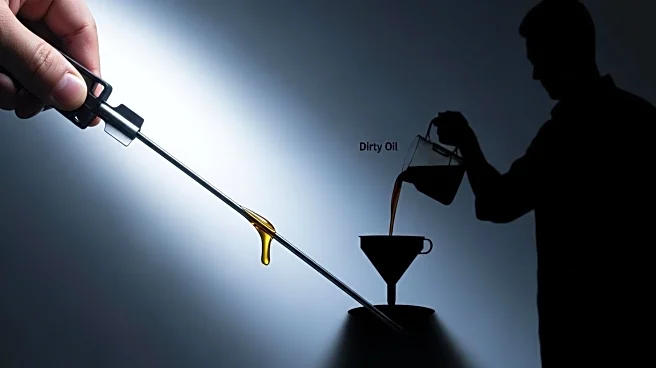What's Happening?
A man named Anthony, who was attempting to sell his Toyota Tacoma, believes he narrowly avoided falling victim to a scam known as the 'dirty oil trick.' During a test drive with four potential buyers, one of the men pointed out oil burning in various spots around the engine bay and suggested revving the engine to see if the smoke persisted. The buyer then drew attention to oil leaking from the exhaust pipe and claimed the coolant reservoir appeared to contain sludge instead of coolant. Despite these claims, Anthony found the oil level to be sufficient and not sludge-like. The buyer offered a low price for the truck, which Anthony almost accepted before realizing the potential scam. This incident highlights the 'dirty oil trick,' where scammers pour oil into the coolant reservoir to create smoke during a test drive, then offer to buy the vehicle at a reduced price.
Why It's Important?
This incident underscores the risks associated with private vehicle sales, particularly the vulnerability to scams like the 'dirty oil trick.' Such scams can lead to significant financial losses for sellers who may unknowingly accept lower offers based on false claims of vehicle issues. The broader impact includes increased caution among private sellers and potential changes in how individuals approach selling vehicles, possibly opting for more secure methods or involving third parties to ensure safety. This scam also highlights the importance of awareness and vigilance in private transactions, as well as the need for sellers to be informed about common fraudulent tactics.
What's Next?
Following this experience, Anthony advises sellers to bring someone with them during private sales and to ensure surveillance cameras cover the transaction area. Sellers may also consider conducting sales in public or secure locations to deter potential scammers. This incident may prompt discussions on improving security measures for private vehicle sales and educating the public on recognizing and avoiding scams. Additionally, platforms facilitating private sales might enhance their guidelines and support to protect users from fraudulent activities.
Beyond the Headlines
The 'dirty oil trick' scam raises ethical concerns about the lengths to which individuals will go to deceive others for financial gain. It also highlights the need for legal measures to address and penalize such fraudulent activities. Long-term, this could lead to increased regulation and oversight in private sales, as well as technological solutions to verify vehicle conditions and prevent tampering.










